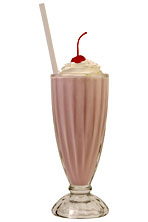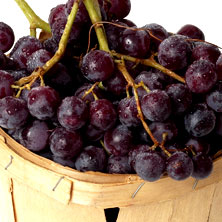Understanding ADD
Q: My daughter has ADD. The doctor prescribed Ritalin, but I hate to put her on drugs. I've heard that supplements can help, specifically omega-3's, zinc, minerals and a blend of French pine tree bark and grape seed extract. The latter is very expensive. Whatdo you advise? — R.C., Aspen, CO
A: The Ritalin Generation is upon us. In the last five years, the number of children on ADD or hyperactivity medications such as Ritalin has doubled. How sobering it is that about 8 million kids are on Ritalin-type prescription drugs today. Even though Attention Deficit Disorder is thought of as a childhood problem, up to 50% of the people who have had this condition as children suffer from it through adulthood.
Fortunately there are more healthful treatment options than Ritalin.The right supplements can help, but first let's get an understanding of ADD in order to come up with a comprehensive healing program.
ADD is a central nervous system disorder. The resulting brain chemistry imbalance affects thinking, mood and activity. Learning and behavior problems occur with symptoms such as lack of concentration, mood swings, learning disabilities, clumsiness, sleep disturbances, low stress tolerance, aggressive behavior and poor self control.
Common sense tells us that when brain chemistry is off balance, we should first regain equilibrium in the most gentle and least invasive way. Thus, first eliminate any dietary, health or environmental triggers that mightbe causing—or in the least, contributing to--this problem. Watch your daughter's behavior and note what triggers ADD. You're the best judge; and you can't always rely on the input of others, especially when commercial interest has influenced it. For example, the USDA's Dietary Guidelines state that sugar does not cause hyperactivity. Any observant parent knows otherwise.
 Foods that most typically interfere with brain chemistry include sugar, food additives, dairy products (especially factory-farmed products containing growth hormones, steroids and antibiotics), wheat and flour products, corn (including corn sweeteners), chocolate, caffeine (including thatin sodas) and soy. See Healthy Diet and Identify Food Allergies. Environmental pollutants that exacerbate ADD include heavy metals such as aluminum, lead and copper as well as pesticides, herbicides and insecticides. Use natural household cleaning supplies and health and beauty products. ADD symptoms may be exacerbated by other existing health problems such as allergies and food reactions, candida-type yeast infection, parasitic infections, stress, hypoglycemia or thyroid disorders, and so need tobe treated.
Foods that most typically interfere with brain chemistry include sugar, food additives, dairy products (especially factory-farmed products containing growth hormones, steroids and antibiotics), wheat and flour products, corn (including corn sweeteners), chocolate, caffeine (including thatin sodas) and soy. See Healthy Diet and Identify Food Allergies. Environmental pollutants that exacerbate ADD include heavy metals such as aluminum, lead and copper as well as pesticides, herbicides and insecticides. Use natural household cleaning supplies and health and beauty products. ADD symptoms may be exacerbated by other existing health problems such as allergies and food reactions, candida-type yeast infection, parasitic infections, stress, hypoglycemia or thyroid disorders, and so need tobe treated.
You asked about giving your daughter minerals, omega-3 fatty acids anda French grape seed and pine tree bark supplement. Before trying anyof these, first determine her specific needs. A holistic practitioner can evaluate your daughter's organic acid levels by means of an inexpensive and simple urine test gives a concise profile. The practitioner would then advise a diet and supplement regime that meets your daughter's specific needs, which well might include minerals and omega-3 fatty acids. If your health practitioner is not aware of this test, staff in the vitamin department of your local natural food store may be able to direct you.
There are several quality antioxidant supplements available that are effective for ADD. An expensive one, Pycnogel, is made from French pinetree bark and grape seeds. The primary compounds in antioxidants are tannins (polyphenols or oligomeric proanthocanidins), which are acid likesubstances with an astringency that makes you want to pucker. More important than the pucker are their antioxidant properties that make tannins nature's most potent free radical scavengers. Regular tannin consumption not only counters ADD but also helps prevent heart attacks, strokes and cancer and can retard aging.
 Less pricey tannin sources include tea, coffee chestnuts, acorns, wine, grapes, grape seeds, wine and the bark and needles of pine trees. So, the next time you're munching on organic grapes, chew up the seeds as well. And when there's a pine tree in your neighborhood, making your own antioxidant elixir is as easy as making a cup of tea. See Grape Compote and Pine Needle Elixir.
Less pricey tannin sources include tea, coffee chestnuts, acorns, wine, grapes, grape seeds, wine and the bark and needles of pine trees. So, the next time you're munching on organic grapes, chew up the seeds as well. And when there's a pine tree in your neighborhood, making your own antioxidant elixir is as easy as making a cup of tea. See Grape Compote and Pine Needle Elixir.
May you be well nourished
See Accompanying recipes:
Grape Compote
Pine Needle Elixir
(Reprinted with the kind permission of Rebecca Wood, from her wonderful website)
 Rebecca Wood, who learned gardening and foraging techniques from her grandparents and studied with leading experts in macrobiotics and traditional Oriental medicine, has taught and written about a sustainable diet since 1970.
Rebecca Wood, who learned gardening and foraging techniques from her grandparents and studied with leading experts in macrobiotics and traditional Oriental medicine, has taught and written about a sustainable diet since 1970.
Her book, The Splendid Grain, won both a James Beard Award and a Julia Child/IACP Award. Her most recent book, The New Whole Foods Encyclopedia, was a One Spirit Book Club (Quality Paperback Book division) main selection. Rebecca has been an educational consultant to numerous organizations in the natural foods industry and currently offers cooking classes for Eden Foods throughout the Western region. She co-founded and directed the East-West Center in Boulder, Colorado, and has established several cooking schools. She currently teaches cooking classes from her home kitchen in Ashland, Oregon.
Rebecca offers a variety of services. To schedule an appointment, check out Rebecca's wonderful website for more information, articles, recipes and books. Each month new recipes and articles are posted.
